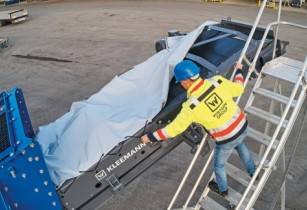ACWA Power has inaugurated the 300 MW Sakaka PV IPP, KSA?s first utility scale renewable energy project, at an investment value of US$320mn (1.2 billion Saudi riyals)
The ceremony was held under the patronage of His Royal Highness Prince Mohammed bin Salman bin Abdulaziz Al Saud, Crown Prince, Deputy Prime Minister and Minister of Defense, and in the presence of His Royal Highness Prince Abdulaziz Bin Salman Bin Abdulaziz Al Saud, Saudi Minister of Energy, and Prince Faisal bin Nawaf bin Abdulaziz, Governor of Al-Jouf Region.
His Royal Highness Prince Abdulaziz Bin Salman Bin Abdulaziz Al Saud, Saudi Minister of Energy, said, ?The private sector plays a fundamental role in the development of renewable energy projects in the kingdom. The Sakaka project we are inaugurating today was developed by ACWA Power, together with various Saudi companies that have worked alongside ACWA Power to make this remarkable achievement a reality.
?ACWA Power is the leading national company in this field, and it is considered a state-owned company and is sponsored by the state because ACWA Power has proven to be a distinct company worthy of the government?s ownership. Consequently, the Public Investment Fund currently has 50% ownership of ACWA Power, which as my brother Mohammad mentioned spans thirteen countries around the world. One of its most important projects is Sakaka PV, which as my brother Mohamed also stated, that 97% of the operating team are Saudis, and 90% of the workforce is from Al Jouf region.?
The inauguration of Sakaka PV IPP marks a pivotal moment in the continued energy diversification and development plans of Saudi Arabia. The project was awarded to an ACWA Power led consortium at a world record tariff, at the time, of 8.781 halalas/kWh in 2018, which has paved the way for subsequent projects of the National Renewable Energy Programme (NREP) to lower the cost of clean solar electricity in the kingdom.



























